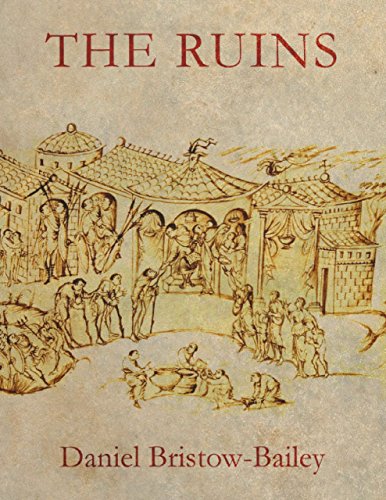Working on one thing at a time, for as long as you need to or feel like it, is a luxury.
This site is now in archives-only mode. Click here to read why.
This site is now in archives-only mode. Click here to read why.
Today's Book Introduction guest post comes from Daniel Bristow-Bailey, introducing his historical fiction novella, The Ruins, set in seventh century England. This is a fascinating time in history, with a lot of social change, which makes for an interesting back drop to a story. I'm looking forward to reading this novella!
The Ruins
by Daniel Bristow-Bailey

Aged fifteen and fresh from fighting the natives on the Western border, Edward is sent to the labyrinthine palace of Lord Norbert to be baptised into the newly-fashionable Christian faith and to learn how a member of the Saxon nobility should behave. Amid the ancient ruins, Edward encounters a dangerous mix of politics, religion and sexual desire.
“…running in counterpoint beneath the Christian year are the rituals of the old religion that Edward grew up with, observed openly by the townspeople outside the palace and privately by those within. The days of the week are still named for the old gods and people offer prayers and sacrifices between the Sunday masses in the new chapel.
And beneath both of these is a deeper rhythm still, like a heartbeat within the Earth, the turn of the year as marked by the natives and their horse-gods and tree-gods and antlered men in the woods. On certain days the Welsh slaves do strange things. They scratch signs over doorways and leave bowls of milk out for unseen creatures and when Edward asks about them they stare back blank-faced and say nothing.
Sometimes Edward thinks he can hear this heartbeat, pulsing beneath the palace. There have been times when he is exploring in the forbidden basements and he swears he can feel it coming up through the floor. Sometimes it feels like this is still the natives’ land and his people are just living on top of it.”
A lot of people have asked me why I chose Anglo-Saxon England, specifically Seventh-Century Wessex, as a setting for The Ruins. Everyone has a pretty well-defined set of preconceptions about what life in the Roman Empire was like, or in the High Medieval period of knights and castles and feudal lords, but the period between the two is less well-defined in the popular imagination and thus more open to creative re-interpretation. The lack of source material on the period, while it must be frustrating to historians, is liberating for someone writing fiction.
There’s also a post-apocalyptic aspect to Anglo-Saxon England. Post-Apocalyptic fiction is pretty big now, whether the End of Days is brought about by zombies or climate change or alien invasion, and like everyone else I am attracted to these bleak stories of survival by the way that they strip away the trappings of civilisation and promise to expose something essential about human nature.
History and pre-history is full of the rise and fall of civilisations, and the European “Dark Age” following the collapse of the Western Roman Empire is only one of the more recent examples. I like the idea that the apocalypse is something that comes round pretty regularly and it’s heartening to be reminded, in these uncertain times, that even the collapse of civilisation isn’t the end of the world, and may just be the start of another story.
The Ruins is available now from Amazon as an ebook or in paperback.
Find Daniel Bristow-Bailey on GoodReads.
Add new comment